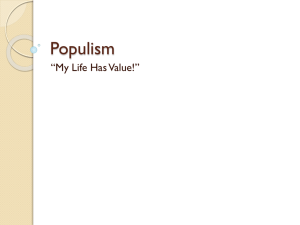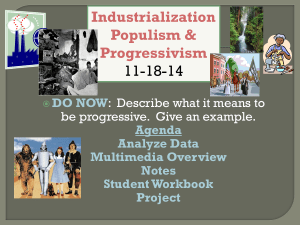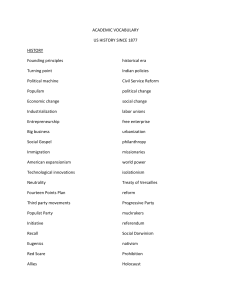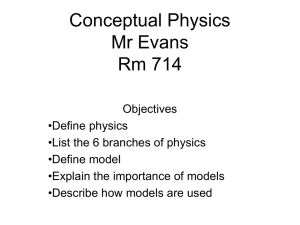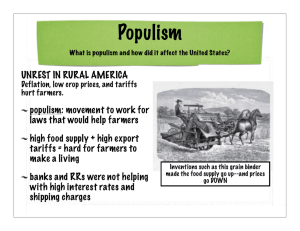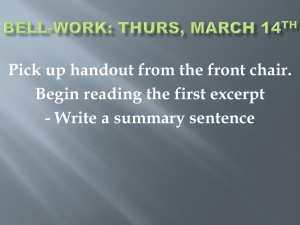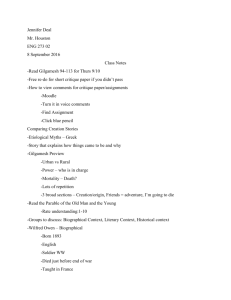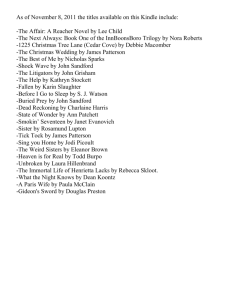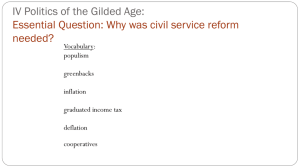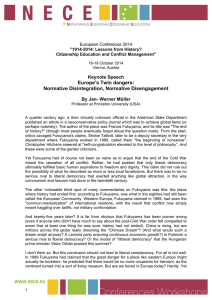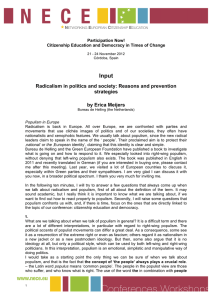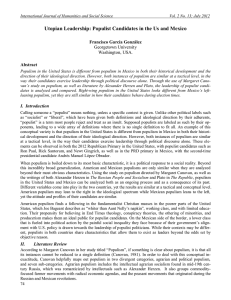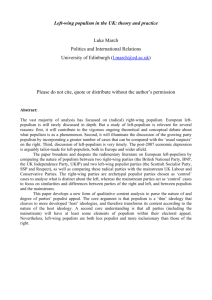The Legacy and Irony of the Rise and Fall of Populism
advertisement
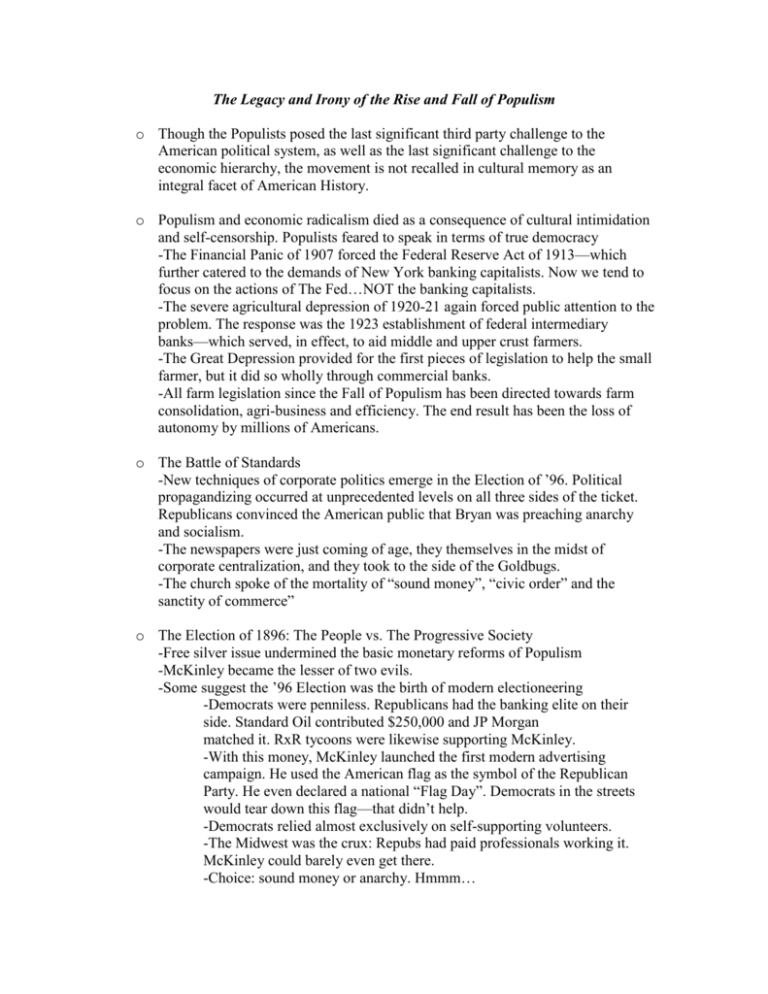
The Legacy and Irony of the Rise and Fall of Populism o Though the Populists posed the last significant third party challenge to the American political system, as well as the last significant challenge to the economic hierarchy, the movement is not recalled in cultural memory as an integral facet of American History. o Populism and economic radicalism died as a consequence of cultural intimidation and self-censorship. Populists feared to speak in terms of true democracy -The Financial Panic of 1907 forced the Federal Reserve Act of 1913—which further catered to the demands of New York banking capitalists. Now we tend to focus on the actions of The Fed…NOT the banking capitalists. -The severe agricultural depression of 1920-21 again forced public attention to the problem. The response was the 1923 establishment of federal intermediary banks—which served, in effect, to aid middle and upper crust farmers. -The Great Depression provided for the first pieces of legislation to help the small farmer, but it did so wholly through commercial banks. -All farm legislation since the Fall of Populism has been directed towards farm consolidation, agri-business and efficiency. The end result has been the loss of autonomy by millions of Americans. o The Battle of Standards -New techniques of corporate politics emerge in the Election of ’96. Political propagandizing occurred at unprecedented levels on all three sides of the ticket. Republicans convinced the American public that Bryan was preaching anarchy and socialism. -The newspapers were just coming of age, they themselves in the midst of corporate centralization, and they took to the side of the Goldbugs. -The church spoke of the mortality of “sound money”, “civic order” and the sanctity of commerce” o The Election of 1896: The People vs. The Progressive Society -Free silver issue undermined the basic monetary reforms of Populism -McKinley became the lesser of two evils. -Some suggest the ’96 Election was the birth of modern electioneering -Democrats were penniless. Republicans had the banking elite on their side. Standard Oil contributed $250,000 and JP Morgan matched it. RxR tycoons were likewise supporting McKinley. -With this money, McKinley launched the first modern advertising campaign. He used the American flag as the symbol of the Republican Party. He even declared a national “Flag Day”. Democrats in the streets would tear down this flag—that didn’t help. -Democrats relied almost exclusively on self-supporting volunteers. -The Midwest was the crux: Repubs had paid professionals working it. McKinley could barely even get there. -Choice: sound money or anarchy. Hmmm… -Politicizing the Rise of Nativism: the Democrats were seen as being too friendly to blacks and immigrants. -McKinley = 7,035,000 vs. Bryan = 6,467,000. But The Republicans had the North and most of the Midwest (Electoral Politics). -Three Key Developments Influencing the 1996 Election: -Acceleration of the merger movement -Decline of Public Participation in the Democratic process -Corporate Domination of Mass Communications -“The cost of running for office, coupled with the available sources of campaign contributions and the increasing centralization of news gathering and news reporting, all pointed to the massive homogenization of business politics” (287) -“The American populace was induced to accept as its enduring leadership a corporate elite whose influence was to permeate every state legislature in the land, and the Congress as well.” (290) o The Bright Side of the Legacy: The Successes A Moment of Democratic Promise We now know that parties must beware of radical tendencies The meaning of Populism was a cultural assertion of democratic principles. Populists learned a great truth: that cultures are hard to change Populists force us to question the validity of hierarchy and the roles of the moneyed class. Populism shows us how to ACT in the name of freedom and justice. Their organization model has lessons to teach. o The Dark Side of the Legacy: The Failures: Failed to unite with the urban laboring masses to build a broad base of support Failed to understand how to raise money in the corporate milieu Failed to overcome social behaviors of deference to authority. Need self-respect and political efficacy. Failed to work with, not vilify, the news media to gain influence Farm tenancy increased after the fall of Populism (nationwide from 25 to 38% from 1880-1910. In Kansas 48% of farms were tenant run by 1950. 46% of all Southern farms were tenant run by 1940). “I hope we shall crush in its birth the aristocracy of our monied corporations which dare already to challenge our government to a trial of strength, and bid defiance to the laws of our country.” -Thomas Jefferson, 1816 Goodwin, Lawrence. The Populist Movement: A Short History of Agrarian Revolt in America. Oxford University Press. 1978.
